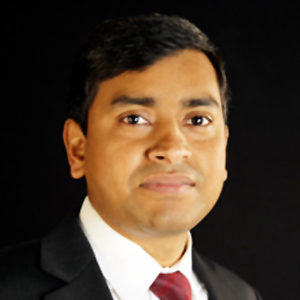 Dr. Faruque Hasan is an Assistant Professor in the Artie McFerrin Department of Chemical Engineering at Texas A&M University. His research focuses on developing application-oriented theory, algorithms, computational tools, and optimization methods for energy and the environment. He received his post-doctoral training at Princeton University (2011–2014), and holds a Ph.D. in Chemical Engineering from the National University of Singapore (2010) and a B.S. in Chemical Engineering from Bangladesh University of Engineering & Technology (2005). He also worked as a Research Fellow at the National University of Singapore, and was a Visiting Researcher at Qatar University and Qatargas Operating Company Ltd. He is the coauthor of more than 15 peer-reviewed papers, several book chapters, and 3 international patent applications (PCTs). He is a member of the American Institute of Chemical Engineers (AIChE), Computing & Systems Technology (CAST) Division of AIChE, and American Chemical Society (ACS). He is the recipient of the prestigious World Future Foundation PhD Award in Environmental and Sustainability Research (2010), Best Technical Paper Award in the 1st Annual Gas Symposium in Qatar (2009), and was a member of the Runner-up team in the Princeton University Innovation Forum (2013).
Dr. Faruque Hasan is an Assistant Professor in the Artie McFerrin Department of Chemical Engineering at Texas A&M University. His research focuses on developing application-oriented theory, algorithms, computational tools, and optimization methods for energy and the environment. He received his post-doctoral training at Princeton University (2011–2014), and holds a Ph.D. in Chemical Engineering from the National University of Singapore (2010) and a B.S. in Chemical Engineering from Bangladesh University of Engineering & Technology (2005). He also worked as a Research Fellow at the National University of Singapore, and was a Visiting Researcher at Qatar University and Qatargas Operating Company Ltd. He is the coauthor of more than 15 peer-reviewed papers, several book chapters, and 3 international patent applications (PCTs). He is a member of the American Institute of Chemical Engineers (AIChE), Computing & Systems Technology (CAST) Division of AIChE, and American Chemical Society (ACS). He is the recipient of the prestigious World Future Foundation PhD Award in Environmental and Sustainability Research (2010), Best Technical Paper Award in the 1st Annual Gas Symposium in Qatar (2009), and was a member of the Runner-up team in the Princeton University Innovation Forum (2013).
Research
Dr. Hasan’s research aims to discover novel technological pathways (novel materials, processes, and supply chains) for utilizing carbonaceous fuels while minimizing environmental damage. The unified thrust of his research is to address fundamental problems through developing detailed mathematical modeling, rigorous optimization theory and algorithms, computations and experimental validation. To this end, his research lies at the interface of chemical engineering, applied mathematics, computer science, and operations research. The methodologies and tools that his lab develops are applied to the design and discovery of advanced materials and processes for sustainable fuels and chemicals, carbon capture, oil and gas processing, and shale gas utilization, among others.
- Modeling and optimization of complex systems
- Multi-scale systems engineering for energy and the environment
- CO2 capture, utilization and storage
- Grey-box and black-box systems
- Nonlinear and nonconvex optimization, discrete/continuous optimization
Multi-scale Systems Engineering for Energy and the Environment
Often the discovery and design of novel pathways depend on addressing systems that are complex and vary across different time- and length-scales. Trade-offs between various competing objectives (e.g., selectivity vs. product purity vs. process cost) can be properly elucidated through multi-scale systems engineering. We develop methods to simultaneously address multiple and often contradicting factors at materials, process and supply chain levels.
Modeling and Optimization of Complex Systems
Complex systems can be chemical, biochemical or biological. Examples of complex systems vary from enzyme complexes to biological cells to process plants to supply networks. Compared to conventional process systems engineering, where systems are often considered to be well-described using suitable models and mathematical programs, complex systems are difficult to optimize due to their complexity, uncertainty, and the inability to generate accurate data using physical and/or computational experiments in reasonable time. Many fundamental challenges need to be resolved for accurate model prediction, control and optimization. We are currently working on developing theoretical, computational and algorithmic frameworks for complex systems optimization.
CO2 Capture, Utilization, and Storage (CCUS)
CCUS is an enabling technology toward clean energy from fossil fuels. While material selection is crucial for CO2 capture, the industrial scale deployment of CCUS requires material-, process- and supply chain network-level developments. Our work in CCUS extends across all three levels. Our aim is to design and discover materials and processes to reduce CO2 emissions in the most cost-effective manner.
